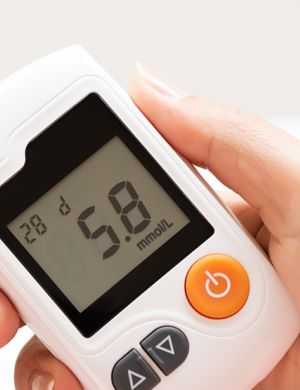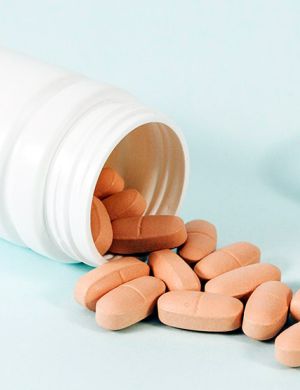
The Future of FDA Cosmetics Regulations: What to Expect in the Coming Years
beautifying, promoting attractiveness, or altering the appearance”. Among the products included in this The FD&C Act defines cosmetics by their intended use, as “articles intended to be rubbed, poured, sprinkled, or sprayed on, introduced into, or otherwise applied to the human body for cleansing, beautifying, promoting attractiveness, or altering the appearance”. Among the products included in this definition are skin moisturizers, perfumes, lipsticks, fingernail polishes, eye and facial makeup, cleansing shampoos, permanent waves, hair colors, and deodorants, as well as any substance intended for use as a component of a cosmetic product. It does not include soap.
Under the law, cosmetic products and ingredients do not need FDA premarket approval, with the exception of color additives. In general, except for color additives and those ingredients that are prohibited or restricted by regulation, a manufacturer may use any ingredient in the formulation of a cosmetic, provided that–
- The ingredient and the finished cosmetic are safe under labeled or customary conditions of use,
- The product is properly labeled, and
- The use of the ingredient does not otherwise cause the cosmetic to be adulterated or misbranded under the laws that FDA enforces.
Most American consumers use cosmetic products every day. On average people use 6 to 12 cosmetics products daily. The Modernization of Cosmetics Regulation Act of 2022 (MoCRA) is the most significant expansion of the FDA’s authority to regulate cosmetics since the Federal Food, Drug, and Cosmetic (FD&C) Act was passed in 1938. This new law will help ensure the safety of cosmetic products many consumers use daily.
MoCRA establishes the following new requirements for industry such as:
1. Adverse Event Reporting: A responsible person is required to report serious adverse events associated with the use of cosmetic products in the U.S. to the FDA within 15 business days after receiving the report and certain additional information, such as new medical information, within one year of the initial report. The FDA will also have access to adverse event reports during an inspection.
2. Facility Registration: Manufacturers and processors must register their facilities with the FDA and renew their registration every two years.
2.1 FDA has the authority to suspend a facility’s registration if the agency determines that a cosmetic product manufactured or processed by the registered facility and distributed in the U.S. has a reasonable probability of causing serious adverse health consequences or death to humans, and the agency has a reasonable belief that other products manufactured or processed by the facility may be similarly affected because of a failure that cannot be isolated to a product or products, or is sufficiently pervasive to raise concerns about other products manufactured in the facility. If a facility’s registration is suspended, it is a prohibited act to distribute or sell (or otherwise introduce or deliver into commerce) in the U.S. cosmetic products from the facility.
3. Product Listing: A responsible person must list each marketed cosmetic product with the FDA, including product ingredients, and provide any updates annually.
4. Safety Substantiation: A responsible person is required to ensure and maintain records supporting adequate safety substantiation for their products.
It exempts certain small businesses from GMP, registration, and product listing requirements. However, such exemptions do not apply to manufacturers or facilities that manufacture or process the following cosmetic products:
- Products that regularly come into contact with mucus membrane of the eye under customary or usual conditions of use.
- Products that are injected.
- Products that are intended for internal use.
Products that are intended to alter appearance for more than 24 hours under customary or usual conditions of use and removal by the consumer is not part of such conditions of use.
Exemptions also exist for certain products and facilities that are subject to requirements for drugs and devices.
MoCRA provides new authorities to the FDA including:
Records Access
If certain conditions are met, the FDA can access and copy certain records related to a cosmetic product, including safety records.
Mandatory Recall Authority
If the agency determines that there is a reasonable probability that a cosmetic is adulterated or misbranded and the use of or exposure to the cosmetic will cause serious adverse health consequences or death, the FDA has the authority to order a mandatory recall if the responsible person refuses to do so voluntarily.
The FDA has stopped accepting and processing submissions to the voluntary registration program for cosmetics establishments and products and is developing a program for submission of the facility registrations and product listings mandated by MoCRA and will provide further updates on its forthcoming availability.
FDA has consistently advised manufacturers to use whatever testing is necessary to ensure the safety of their products and ingredients. Firms may substantiate safety in a number of ways. FDA has stated that “the safety of a product can be adequately substantiated through reliance on already available toxicological test data on individual ingredients and on product formulations that are similar in composition to the particular cosmetic, and performance of any additional toxicological and other tests that are appropriate in light of such existing data and information.
Before December 2023, cosmetic production facilities and the manufacturers should make plans for facility registration and product listing. The demands of MoCRA for product safety, CGMP compliance, adverse event reporting, record keeping, and labelling should also be reviewed by cosmetic companies. Cosmetic companies should be prepare for further guidance and detailed requirements in the coming years as the FDA is set to begin rule making on these important compliance areas. by cosmetic companies. Cosmetic companies should be prepare for further guidance and detailed requirements in the coming years as the FDA is set to begin rule making on these important compliance areas.
Don’t miss out! Click here to stay in touch.
Categories
- Biopharma (59)
- Consumer Health (22)
- Cosmetics (11)
- Diagnostics (5)
- Digital Health (8)
- Food (2)
- Medical Device (113)
- OTC (5)
- Regulatory Intelligence (13)
- Standards (41)
Recent Blogs
Get the latest updates from Vistaar

CONNECT WITH US

Let's talk about how Vistaar can help you





